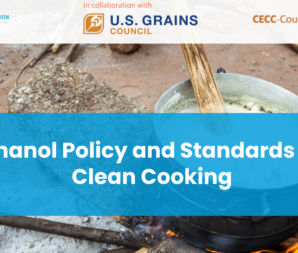SDG Fund supported Clean Cooking projects launched in Botswana and Burkina Faso
In many rural areas of Botswana and Burkina Faso, daily life still begins with the crackle of firewood. For countless households, wood and charcoal remain the primary sources of cooking fuel. While vital for survival, this reliance comes at a high cost: deforestation, indoor air pollution, and lost opportunities, especially for women and children who spend hours collecting fuel instead of pursuing education or income.
Change is underway.
With support from the UN Joint SDG Fund, the United Nations has launched two Joint Programmes that are accelerating the clean energy transition in the households of both countries. Implemented by UNDP, UNICEF and UNIDO in Botswana, and by FAO and UNIDO in Burkina Faso, these initiatives are demonstrating how access to modern clean cooking solutions can transform lives, protect the environment and unlock new opportunities.
At the core of these efforts is the development of national Clean Cooking Roadmaps by UNIDO in both Botswana and Burkina Faso. These strategic documents will map ways and means to achieve universal access to clean cooking.
Recognizing that technology alone cannot change behaviors, both programmes also focus on preparing Behavior Change Communication Strategies. These campaigns will work closely with women, youth and local communities to address cultural practices, raise awareness of health risks, and promote adoption of modern cooking fuels and technologies.
To ground policy in practice, pilot biogas plants will be established in institutional settings such as schools and community facilities by sister agencies. These pilots will not only demonstrate how organic waste can be transformed into clean fuel but will also serve as training and knowledge hubs. In Botswana, biogas pilots will integrate food systems and school nutrition, while in Burkina Faso, pilots will showcase institutional cooking applications, offering replicable models for wider adoption.
Together, these UN joint initiatives are creating enabling environments by engaging governments agencies especially the Ministry of Energy in respective countries, entrepreneurs and civil society. By supporting small businesses, and preparing market ready projects, these projects are expected to lay the foundation for green jobs, new investments and long-term sustainability.
The benefits extend far beyond energy access. Cleaner cooking reduces pressure on forests, cuts greenhouse gas emissions and improves public health. It also frees up time, particularly for women and children, opening doors to education, economic participation and empowerment.
For both Botswana and Burkina Faso, the just energy transition is not simply about moving away from firewood and charcoal. It is about building resilience, creating opportunity and advancing equity. Through the support of the SDG Fund and the collaboration of the Governments, UN agencies and communities, both countries are being empowered to cook in cleaner, safer and more sustainable ways, paving the way for a future where no one is left behind.


